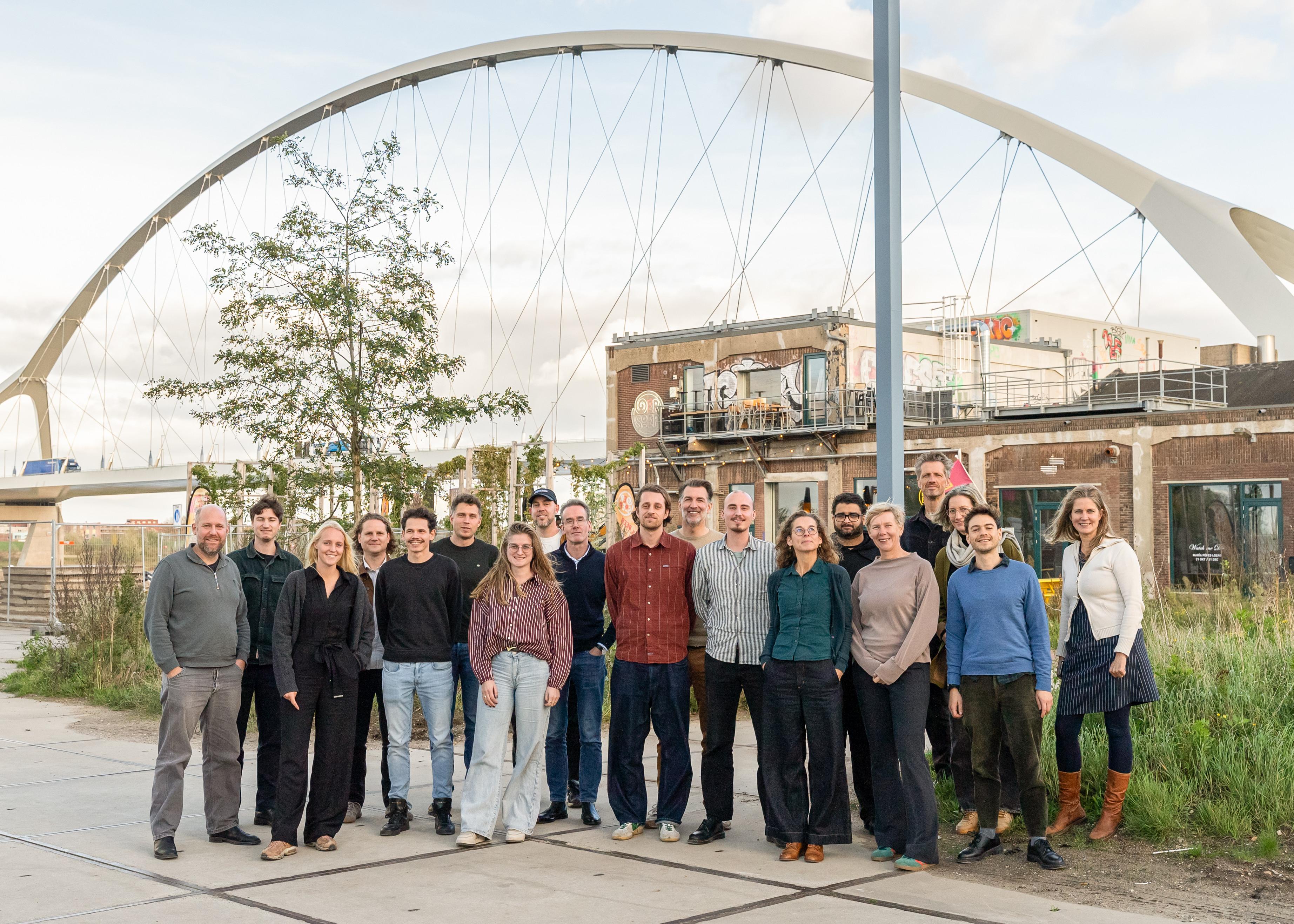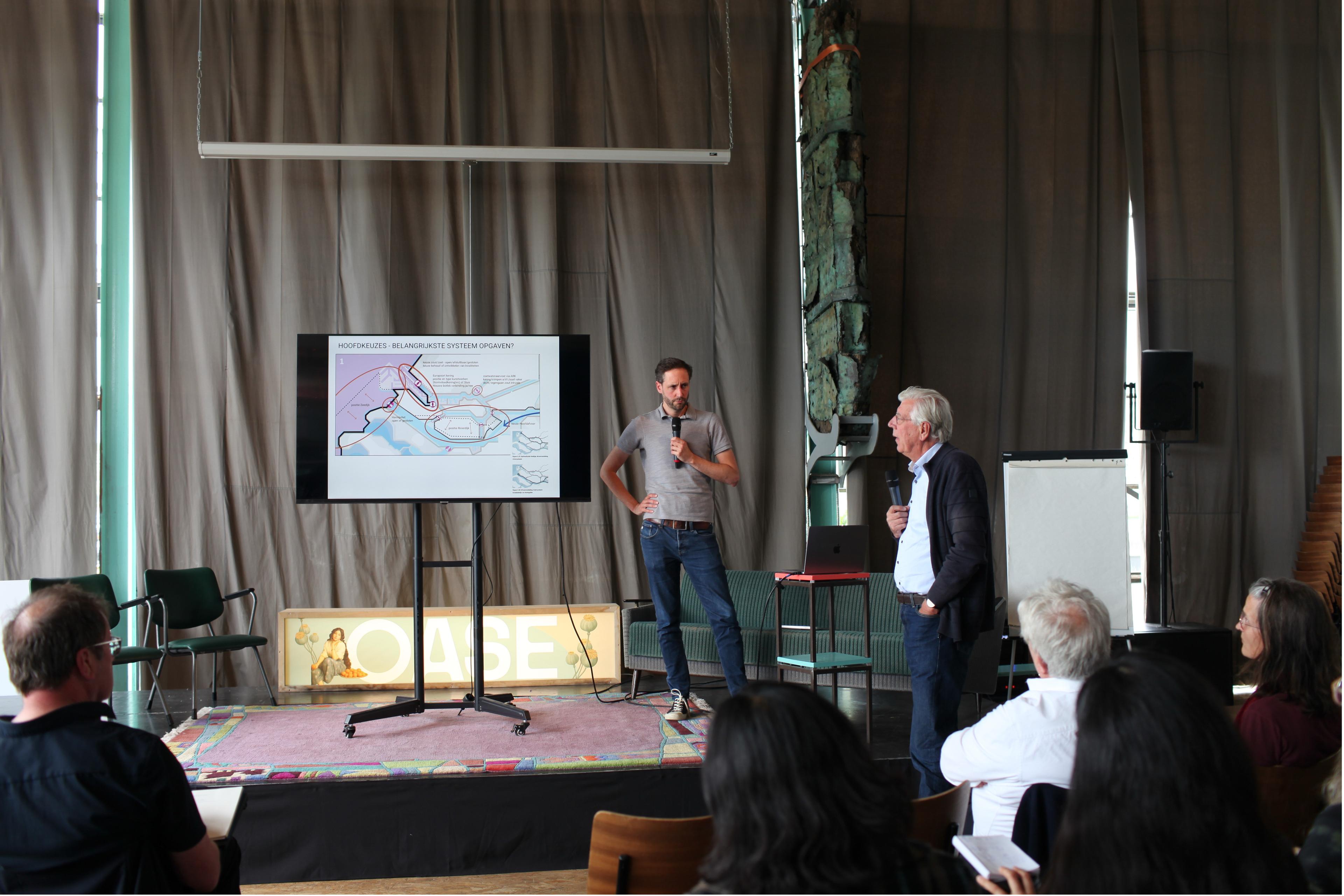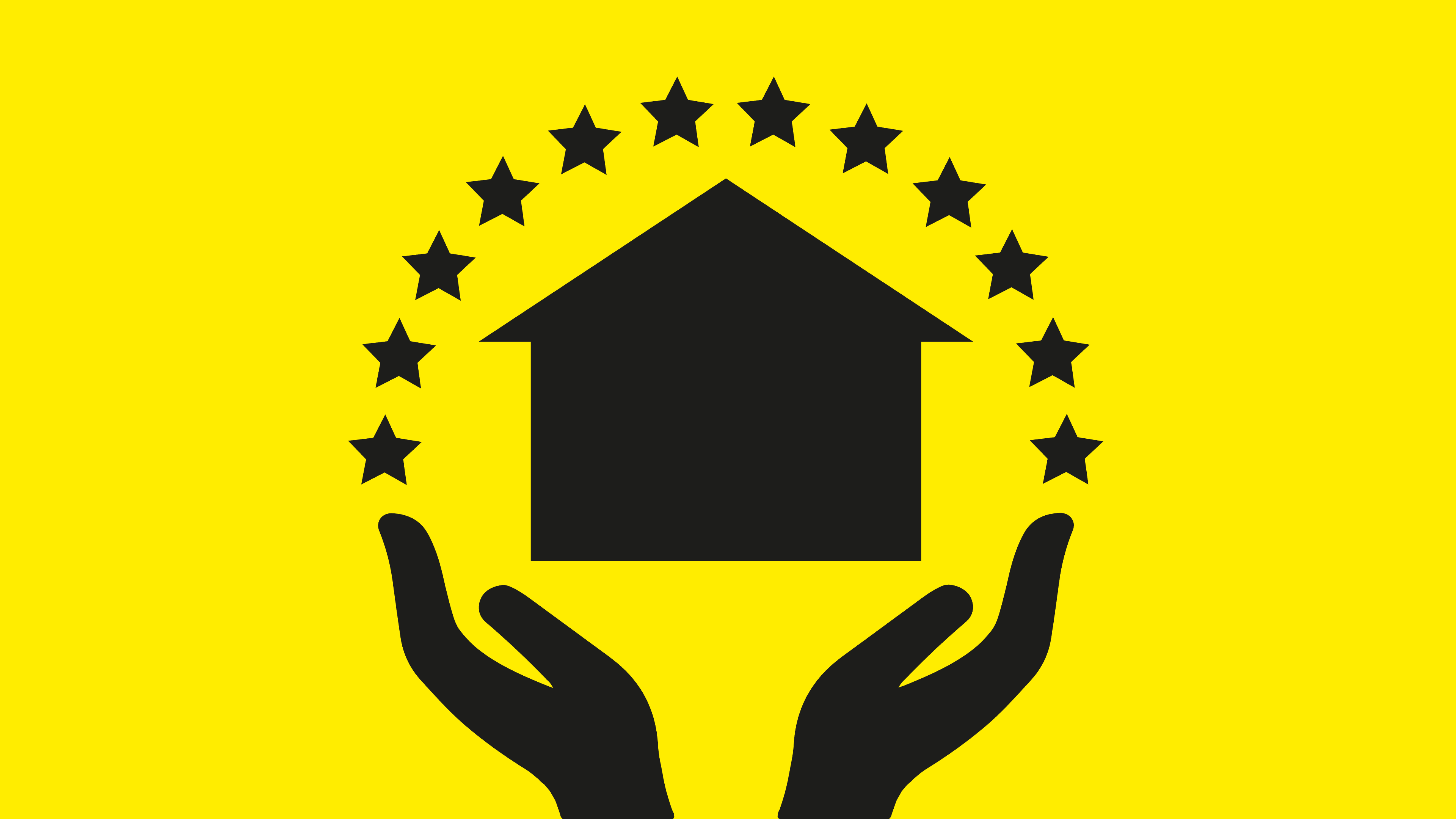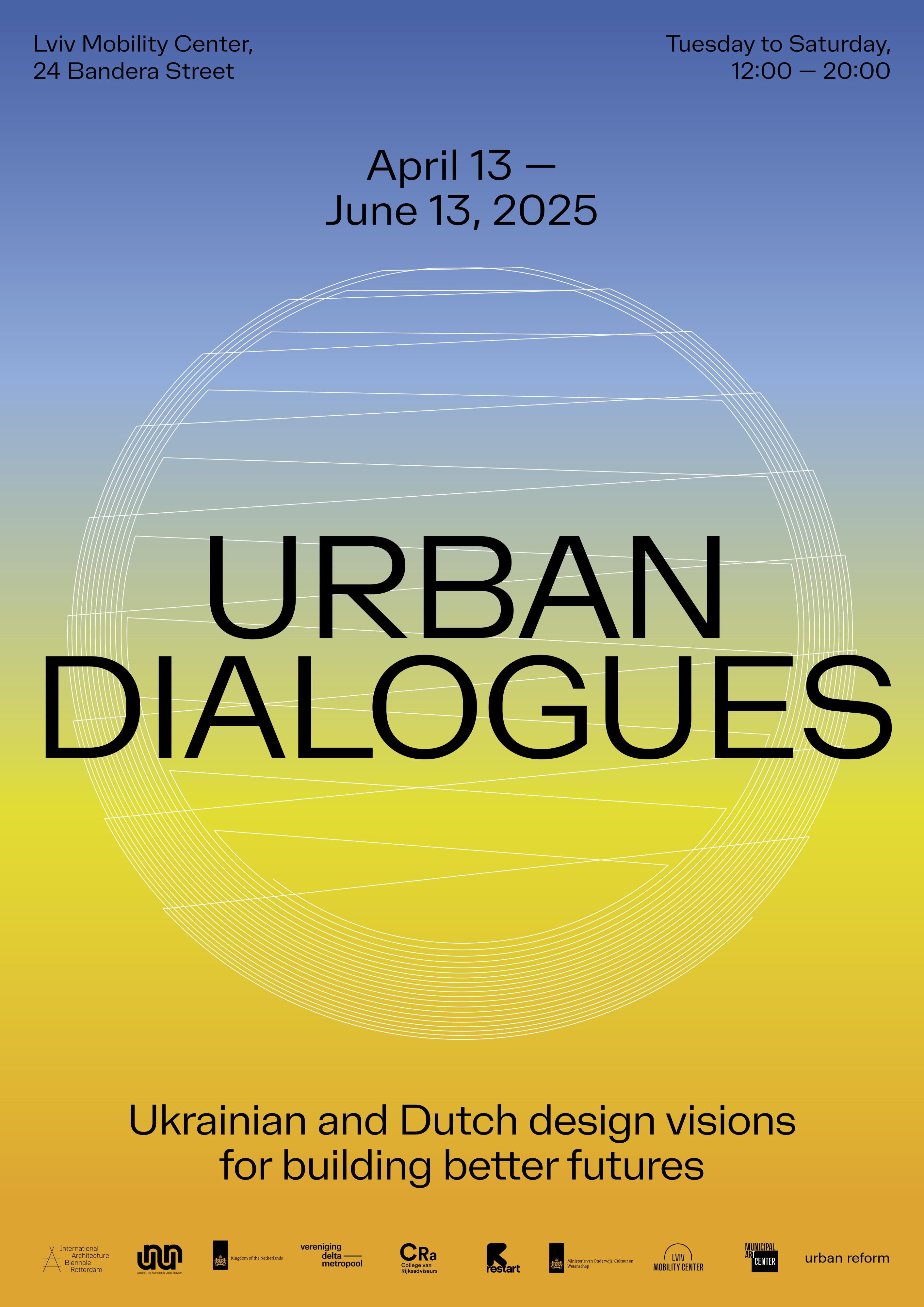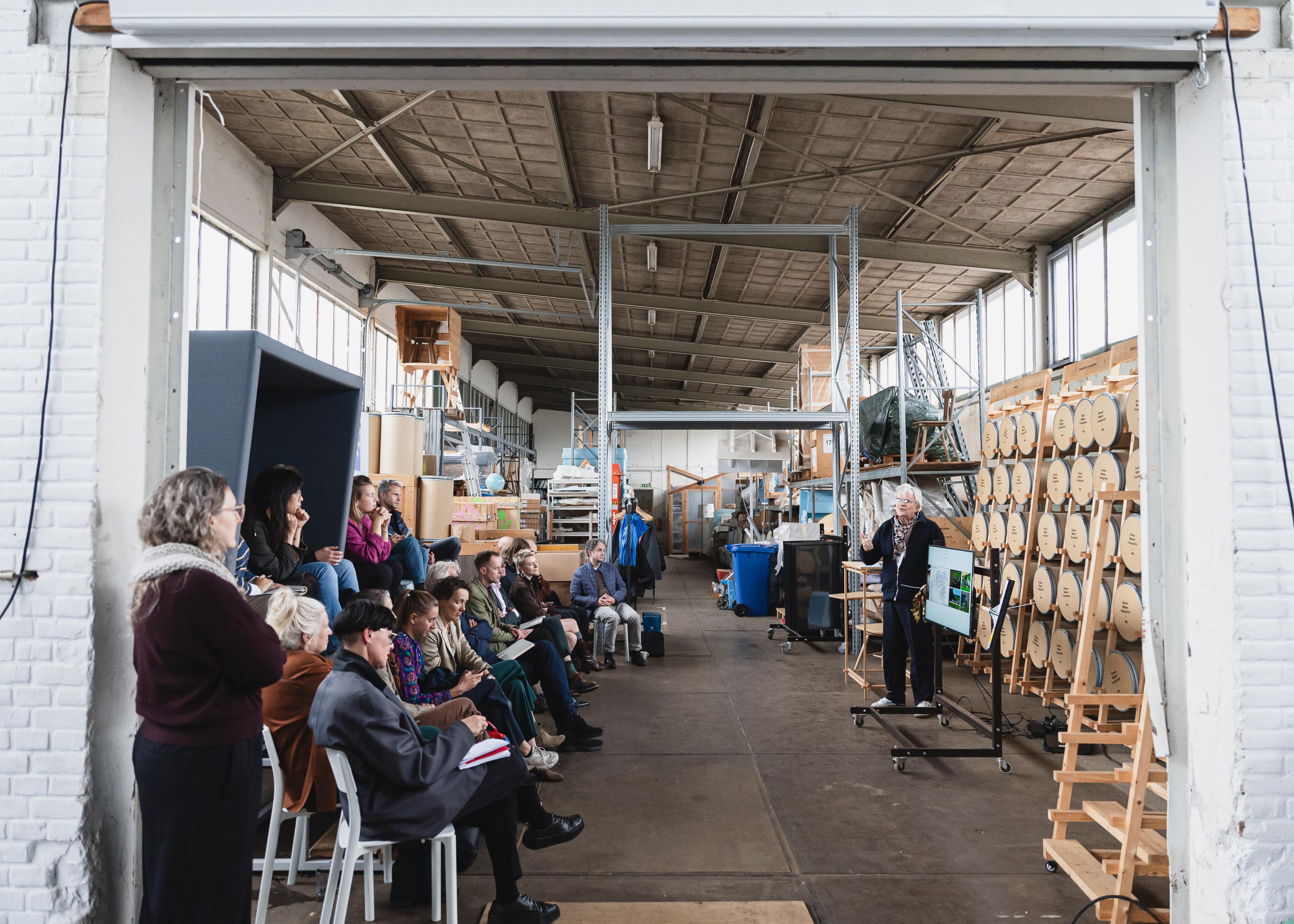The first working session of the Ministry of Make! x Gelderland project took place on 30 October. The Ministry of Make! links social challenges to collective knowledge, using imagination to develop new designs. The Dutch province of Gelderland is addressing its most pressing task: the spatial connections between energy, water, food, nature, and housing. The four selected design teams met to share their initial research findings and exchange knowledge. Team LOF & FARO is addressing the theme of Energy; team LMNL & Studio Dérive is working on Food; team YIMBA! (a collaboration between KRAFT architecten, Urban Synergy, LANDLAB and COALstudio) is working on Water; and team Ziegler | Branderhorst is working on Nature. All design teams will develop local cases, first through the lens of their own main theme and ultimately by integrating the other themes as well. A fifth theme, Housing, plays an important part in all of the research. The location for this Atelier session was the NYMA Makersplaats, part of the NYMA site on the Waal River in Nijmegen, Gelderland.
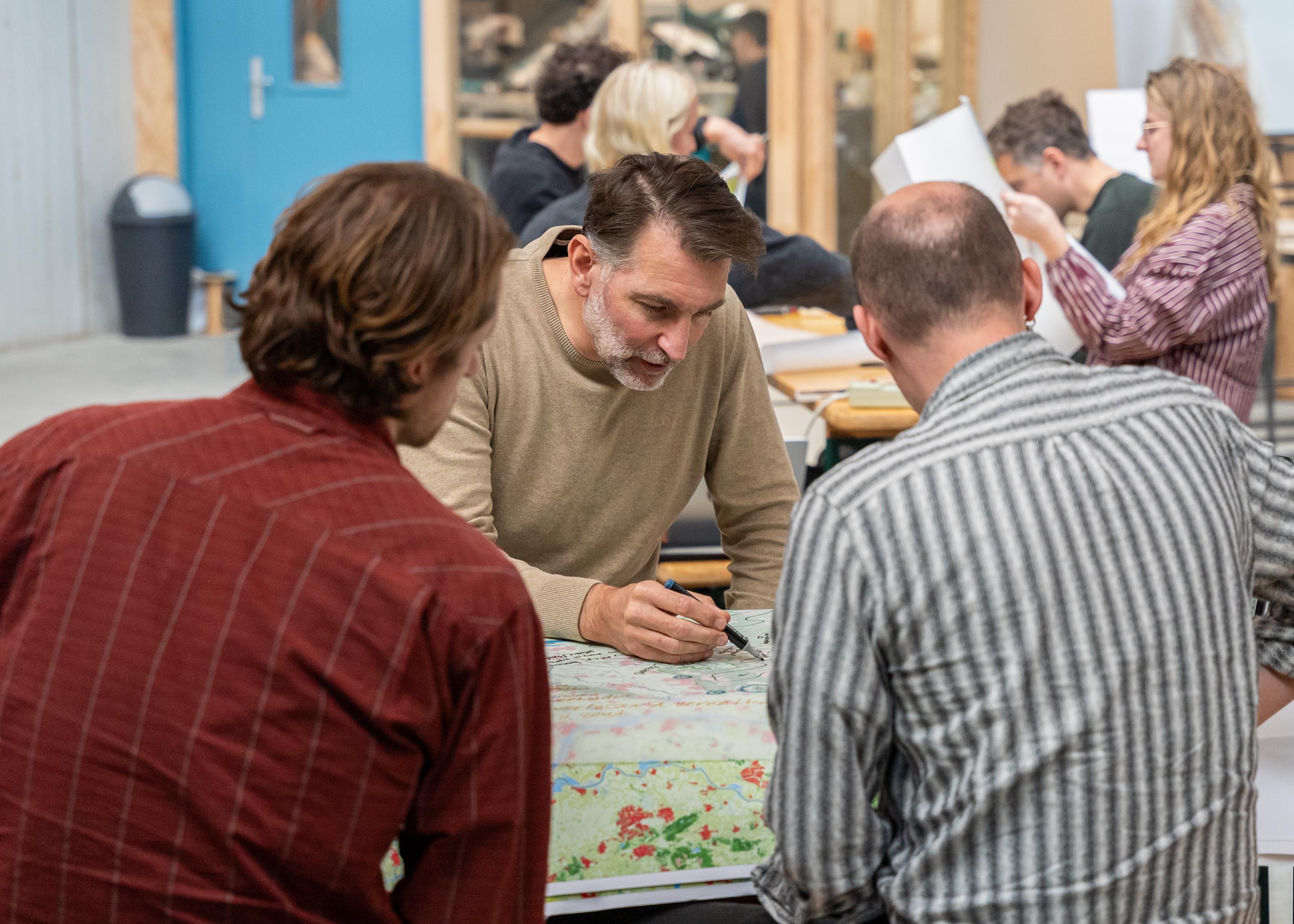
The session focused on the high demand for energy for all kinds of industrial and consumer uses, which has resulted in grid congestion. In addition, improving the sustainability of older buildings and dwellings in Nijmegen is urgent because much of the real estate in Gelderland is poorly insulated and consumes large amounts of energy. This requires large-scale renovation of existing buildings, the development of new infrastructure, and the implementation of new heating solutions. How can this area accelerate the transition to clean heating in cities?
The current electricity grid is under pressure due to the increasing number of renewable energy sources being connected. Many areas can no longer connect new solar parks or wind turbines without grid reinforcement. Expanding energy storage capacity is necessary to absorb peaks and troughs in renewable energy production. Batteries, hydrogen, heat pumps, and other storage technologies are needed to decarbonize housing and industry, thereby strengthening the overall business climate.
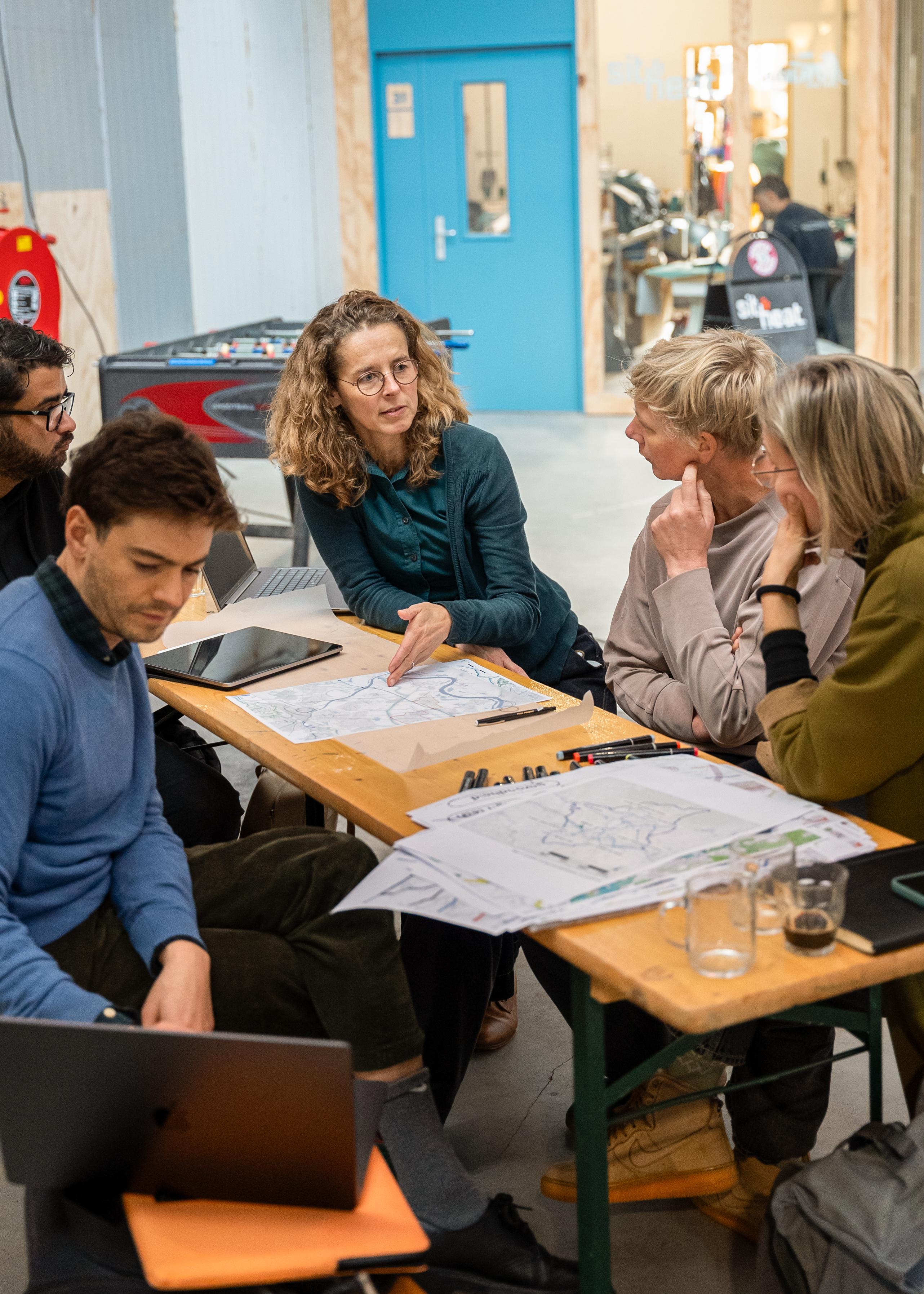
The teams worked enthusiastically to share knowledge, clarify key questions, and offer suggestions about the content, methods, and regional specificities of each other’s research areas. Which spatial scales suit the challenge? The range runs from redefining the greenhouse of the future to energy-driven planning and making based on inherited rural knowledge. Dutch national program PONT (De Publieke Ontwerppraktijk) provided an envoy who acted as an impact amplifier by monitoring and safeguarding the link between design capacity and administrative innovation. The insight of the day was that (regenerative) energy generation, storage and the sustainability upgrade of the housing stock go hand in hand.
The next working session, focused on Food, will take place in November. The interim results of the Research by Design will be presented at CASA in Arnhem on 4 December 2025 (7 p.m. – 9:30 p.m.).
